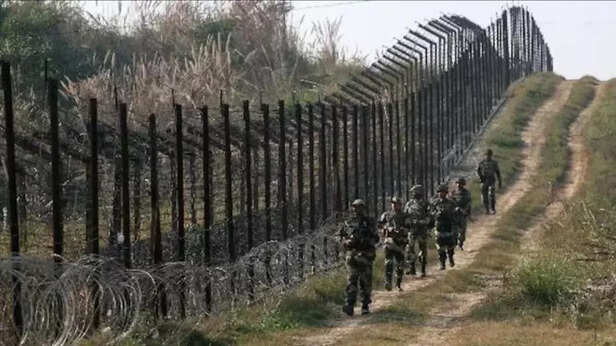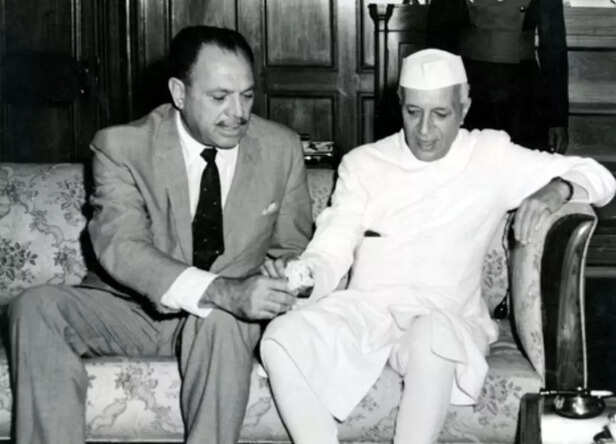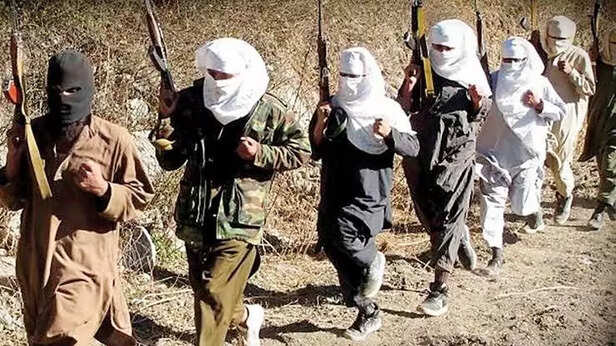The Ceasefire Is Not a Deal to Be Celebrated—India Could Have Escalated to PoK
Ankit Gupta | May 10, 2025, 20:19 IST

"It is the dharma of the state to protect its territory, its people, and its honour — not just through words, but through decisive action."— Kautilya, Arthashastra. India must not confuse ceasefire with solution. Every year we wait, Pakistan cements its grip on PoK. Every ceasefire becomes a lull between two terror waves. Every hesitation signals to the world that India is content with what it has — not what was stolen from it.
“He who hesitates is lost,” said Chanakya. India must remember—history does not favour the moralist. It favours the mover.
When India and Pakistan issued a joint statement in February 2021 to reaffirm their 2003 ceasefire agreement along the Line of Control (LoC), mainstream narratives hailed it as a diplomatic breakthrough. But under the surface of this seemingly prudent gesture lay a troubling possibility: India might have prematurely closed a window to reclaim its stolen geography — Pakistan-occupied Kashmir (PoK).
This wasn’t just about shells and silence. It was about momentum, morality, and mandate. In a rare moment, all three were aligned. Yet, instead of seizing the initiative, India chose restraint. And history has taught us this: the cost of restraint is often paid not in peace but in regret.

In the years leading up to 2021, India found itself in an unprecedented position of strength. The Pulwama attack and the Balakot airstrikes that followed had galvanised national will. Cross-border strikes had proven feasible. The international community, largely fatigued by Pakistan’s terror duplicity, was less inclined to condemn Indian retaliation and more willing to listen.
The revocation of Article 370 in August 2019 had further shifted the narrative. For the first time, India was not merely defending its claim on Kashmir — it was reinforcing it through legislative assertion and administrative integration.
On the other hand, Pakistan was internally bleeding:
The strategic timing was ideal for a limited escalation into PoK — not to wage a reckless war, but to call the bluff of seven decades.
Instead, the ceasefire gave Pakistan a desperately needed breather, not just to regroup militarily, but to revive terror ecosystems, reassert diplomatic deniability, and shift focus to internationalising Kashmir again through softer, passive-aggressive means.

This isn't the first time India has erred on the side of restraint.
Each time, India chose the "moral high ground." But morality without results becomes an albatross, not a crown.
The 2021 ceasefire may be written as a diplomatic maturity. But maturity without assertion is simply paralysis in disguise.

Let’s be clear — PoK is not a disputed territory. It is Indian territory under illegal occupation. The 1994 Indian Parliament resolution leaves no ambiguity: PoK is an integral part of India.
Then why has India made peace with silence? Why does the nation that once dreamed of flying the tricolour in Gilgit now use diplomacy as a blanket for inaction?
The people of PoK have suffered for decades. Basic rights are denied. Gilgit-Baltistan’s resources are plundered. Political repression is routine. Pakistani military establishment uses the region as a launching pad for terror — both ideologically and physically.
By choosing to "hold the fire," India also chose, implicitly, to let this suffering continue.
If India's legitimacy over PoK is unquestionable, then its silence is a betrayal — of its Constitution, of its history, and of the people of PoK themselves.
To be clear, this is not an argument for blind war. Escalation does not mean a full-scale invasion.
Rather, it’s about leveraging momentum:
Had India done so post-2019, global conditions may have been supportive, or at least neutral. Today, the narrative is slipping again — and time favours the one who moves, not the one who hesitates.
Pakistan uses every ceasefire to rebuild, re-strategise, and relaunch. India uses it to celebrate restraint and hope morality will win the day. It won't.
India must understand that peace without resolution is simply delay. The ceasefire of 2021 may have brought temporary calm, but it cost India something far greater — the opportunity to correct a historical wrong.
In Mahabharata, Krishna did not preach peace at all costs. When negotiations failed, he urged Arjuna to fight — not for bloodlust, but for dharma.
Today, India's dharma lies in reclaiming what is rightfully hers — not just to redraw borders, but to reassert the very idea of India as a sovereign, assertive civilisation that no longer accepts partition, terror, or cowardice as fate.
"Time favours the bold. History rewards the resolute. Ceasefire may have been a pause—but the next chapter must begin with purpose."
When India and Pakistan issued a joint statement in February 2021 to reaffirm their 2003 ceasefire agreement along the Line of Control (LoC), mainstream narratives hailed it as a diplomatic breakthrough. But under the surface of this seemingly prudent gesture lay a troubling possibility: India might have prematurely closed a window to reclaim its stolen geography — Pakistan-occupied Kashmir (PoK).
This wasn’t just about shells and silence. It was about momentum, morality, and mandate. In a rare moment, all three were aligned. Yet, instead of seizing the initiative, India chose restraint. And history has taught us this: the cost of restraint is often paid not in peace but in regret.
The Strategic High Ground

A Moment That May Never Return
In the years leading up to 2021, India found itself in an unprecedented position of strength. The Pulwama attack and the Balakot airstrikes that followed had galvanised national will. Cross-border strikes had proven feasible. The international community, largely fatigued by Pakistan’s terror duplicity, was less inclined to condemn Indian retaliation and more willing to listen.
The revocation of Article 370 in August 2019 had further shifted the narrative. For the first time, India was not merely defending its claim on Kashmir — it was reinforcing it through legislative assertion and administrative integration.
On the other hand, Pakistan was internally bleeding:
- An economic crisis loomed.
- Civil-military tensions were rising.
- Imran Khan’s government was losing credibility fast.
- China was quietly watching, but not eager to entangle further post-Galwan.
Instead, the ceasefire gave Pakistan a desperately needed breather, not just to regroup militarily, but to revive terror ecosystems, reassert diplomatic deniability, and shift focus to internationalising Kashmir again through softer, passive-aggressive means.
The Ghosts of History

The Cost of Indian Restraint
This isn't the first time India has erred on the side of restraint.
- In 1948, after Indian forces had managed to reclaim large parts of Jammu and Kashmir from Pakistani tribal invaders, Prime Minister Nehru took the dispute to the UN — freezing Indian troops mid-victory and gifting PoK to Pakistan in perpetuity.
- In 1965, India repelled a full-scale invasion and reached within striking distance of Lahore. Yet, the Tashkent Agreement saw India return all conquered territory for little in return.
- In 1999, India fought a limited war in Kargil. Despite the enemy’s blatant transgression and brutalisation of Indian soldiers, Indian forces were barred from crossing the LoC to chase retreating intruders. Victory remained incomplete.
The 2021 ceasefire may be written as a diplomatic maturity. But maturity without assertion is simply paralysis in disguise.
The Legal and Moral Imperative

PoK is Not a Grey Zone
Let’s be clear — PoK is not a disputed territory. It is Indian territory under illegal occupation. The 1994 Indian Parliament resolution leaves no ambiguity: PoK is an integral part of India.
Then why has India made peace with silence? Why does the nation that once dreamed of flying the tricolour in Gilgit now use diplomacy as a blanket for inaction?
The people of PoK have suffered for decades. Basic rights are denied. Gilgit-Baltistan’s resources are plundered. Political repression is routine. Pakistani military establishment uses the region as a launching pad for terror — both ideologically and physically.
By choosing to "hold the fire," India also chose, implicitly, to let this suffering continue.
If India's legitimacy over PoK is unquestionable, then its silence is a betrayal — of its Constitution, of its history, and of the people of PoK themselves.
Escalation Isn’t Recklessness—It’s Resolution
Rather, it’s about leveraging momentum:
- A show of force to seize limited tactical ground in PoK.
- A covert-ops framework to dismantle terror camps surgically.
- An information campaign to expose Pakistan's colonial grip over Gilgit-Baltistan.
Pakistan uses every ceasefire to rebuild, re-strategise, and relaunch. India uses it to celebrate restraint and hope morality will win the day. It won't.
Peace With Honour, Not Peace With Hesitation
In Mahabharata, Krishna did not preach peace at all costs. When negotiations failed, he urged Arjuna to fight — not for bloodlust, but for dharma.
Today, India's dharma lies in reclaiming what is rightfully hers — not just to redraw borders, but to reassert the very idea of India as a sovereign, assertive civilisation that no longer accepts partition, terror, or cowardice as fate.
"Time favours the bold. History rewards the resolute. Ceasefire may have been a pause—but the next chapter must begin with purpose."
